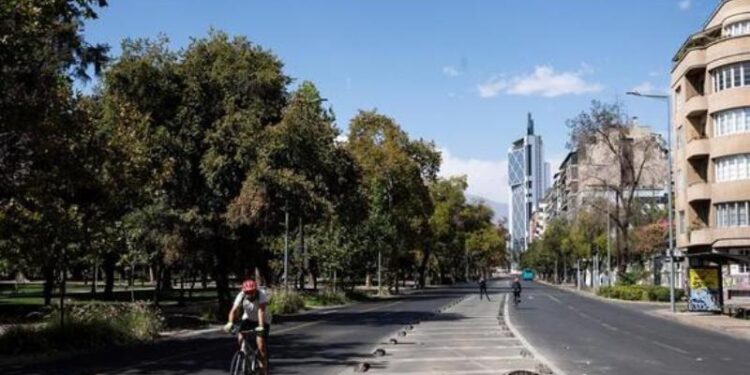RIO DE JANEIRO, BRAZIL – Santiago de Chile began this Saturday (24) its first weekend without quarantine since last March, thanks to a drastic drop in Covid-19 infections that led the authorities to relax restrictions.
After three months of a severe second wave and tough pandemic measures, the pandemic is now in retreat in the country, which has more than 1.6 million total infections and 34,958 deaths, with 1,407 new infections and 83 deaths in the last 24 hours.
The national PCR positivity rate was 2.1%, the lowest since this figure has been recorded and has been below 5% for more than 20 days.
Read also: Check out our coverage on Chile
The number of patients in intensive care units (ICU) also decreased to 1,776 on Saturday, the lowest since March. The number of active cases (people who can become infected) remained below 10,000 for the fourth consecutive day.

The country is partially back to normal, dozens of municipalities came out of total confinement in recent days, and cinemas, theaters, sports centers, and the interiors of bars and restaurants also reopened their doors after months of closure.
The improvement is parallel to one of the most well-organized vaccination processes against Covid-19 in the world, which today reaches more than 85% of the target population with one dose and 78% with two injections, mostly with Coronavac, and to a lesser extent with Pfizer, AstraZeneca, and Cansino immunizers.
The country maintains the curfew from 10 PM to 5 AM in most of the country – in some areas, it starts at midnight – and the state of emergency for catastrophe decreed until October.
The country’s borders will be opened July 26, after almost four months closed, although only Chilean nationals and resident foreigners who have completed their vaccinations will be allowed to leave.

